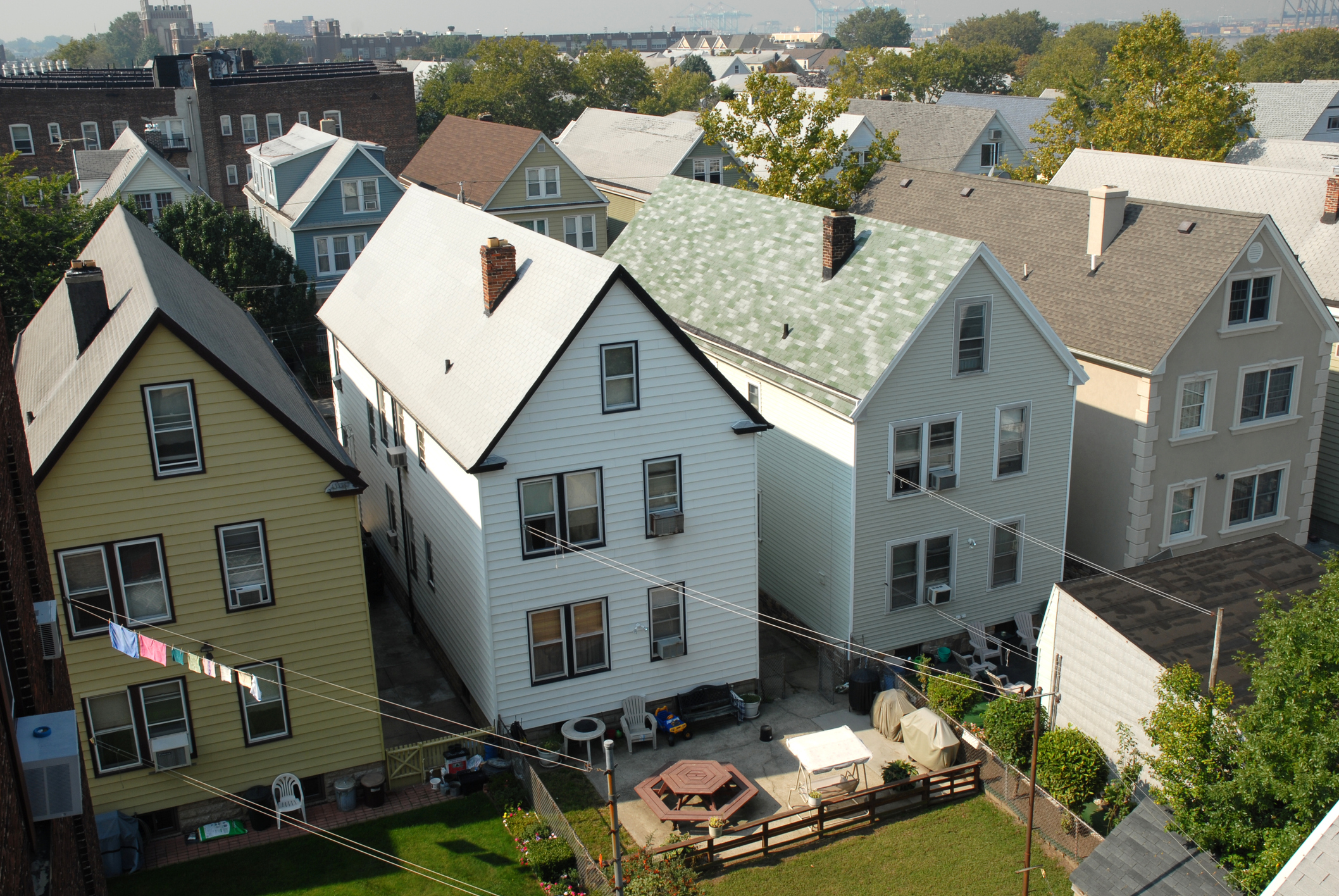Owning a single rental property is great. But what if you could get most of the advantages of real estate investing by simply choosing the best real estate stocks for your portfolio? Real estate stocks are stocks related to the real estate market -- they might be real estate investment trusts (REITs), homebuilders, or real estate companies, but they are all in the industry.
There are many advantages to owning real estate stocks over real property, especially when it comes to eliminating the hassle of hands-on management. But there are a lot of real estate stocks to choose from, too. So, how can you even begin to pick among them?

Six best real estate stocks in 2026
Here are some real estate stocks to watch for the long term:
| Company name | Company ticker | Market cap | Dividend yield | Industry |
|---|---|---|---|---|
| Mid-America Apartment Communities | NYSE:MAA | $15.9 billion | 4.47% | Residential REITs |
| UMH Properties | NYSE:UMH | $1.4 billion | 5.53% | Residential REITs |
| Lennar | NYSE:LEN | $28.5 billion | 1.79% | Household Durables |
| LGI Homes | NASDAQ:LGIH | $1.2 billion | 0.00% | Household Durables |
| Equity Residential | NYSE:EQR | $23.6 billion | 4.46% | Residential REITs |
| CoStar Group | NASDAQ:CSGP | $27.8 billion | 0.00% | Real Estate Management and Development |
1. Mid-America Apartment Communities
Perhaps the most remarkable thing about Mid-America Apartment Communities (MAA -0.59%) is its commitment to redevelopment and adding value to units it already holds rather than selling off aging ones. During the first nine months of 2025, the company renovated 4,768 apartments, increasing the average rental rate of each unit by 6.9% when compared to their pre-renovation prices.

NYSE: MAA
Key Data Points
Its practices are a solid way to conserve a limited supply of apartments and are low-cost methods for increasing per-unit value without constantly buying and selling real estate -- a costly venture on its own. After all, the more spent, the lower the annual return for REIT investors. Responsible conservatorship is also evident in the company's dividend, which has not fallen since it was first offered in 1994.
2. UMH Properties
UMH Properties (UMH -1.15%) is a REIT that has been in the manufactured home business since 1968 and has been publicly traded since 1985. As of Sept. 30, 2025, it held approximately 10,800 individual manufactured rental homes in 144 communities. The company added 433 rental units and 587 developed homesites during the first nine months of 2025.

NYSE: UMH
Key Data Points
As of Sept. 30, 2025, UMH held $1.63 billion in assets, with $467 million in mortgage debt. UMH offers affordable site rent and overall rent for single-family housing, which is likely to remain in high demand as the cost of stick-built, single-family residential homes continues to remain out of reach for many.
3. Lennar
Lennar (LEN -1.13%) is one of the largest builders of single-family homes in the U.S. It reported revenues of $24.8 billion in the first three quarters of 2025 after delivering almost 60,000 homes during that period, with an average price of $393,000.

NYSE: LEN
Key Data Points
Although building homes is its primary focus, Lennar also offers Federal Housing Administration (FHA) and U.S. Department of Veterans Affairs (VA) home loans to its homebuyers through its subsidiary Lennar Mortgage. It also offers title insurance and closing services in 18 states.
Due to its willingness to experiment, Lennar has generally carried decent debt-to-asset ratios. In November 2024, it had $41.3 billion in assets versus $13.3 billion in liabilities. This ratio had slightly increased as of Aug. 31, 2025, with Lennar holding $34.9 billion in assets and $12.1 billion in liabilities.
4. LGI Homes
LGI Homes (LGIH -1.50%) is a growing mid-sized builder that focuses its efforts and marketing on first-time homebuyers. For the nine months ending September 2025, the average price of a home produced and sold by LGI was $363,929. That's a significant discount from the median existing-home price of $410,800 in the second quarter of 2025, according to the Federal Reserve Bank of St. Louis.

NASDAQ: LGIH
Key Data Points
Pricing alone gives LGI a distinct advantage in its market, but that's not the whole story behind the company. LGI finished Q3 2025 with $4.0 billion in assets and $1.96 billion in liabilities.
5. Equity Residential
Equity Residential (EQR +0.05%) is an apartment REIT that has not only committed to providing quality apartment living to residents in major urban areas but also shown a strong commitment to sustainability. The company recently became the first residential REIT to be included in the Dow Jones Sustainability World and Dow Jones Sustainability North America indexes.

NYSE: EQR
Key Data Points
Equity Residential was able to produce small gains of about 3% in normalized funds from operations (FFO) per share in the quarter ending September 2025, reaching $1.02 versus $0.99 in the same period in 2024. Its more than 86,000 units averaged a $3,094 per-month rental rate as of Sept. 30, 2025, and the company held $21 billion in assets and $9.6 billion in liabilities at the end of the third quarter of 2025.
Despite stiff competition in some of the most difficult real estate rental markets in the country, Equity Residential managed to achieve an occupancy rate of 96.3% during Q3 2025.
6. CoStar Group
Unlike the other real estate companies included in this list, CoStar Group doesn't actually deal in real estate; it sells information on the commercial real estate market. Using advanced data analytics, it's managed to dig itself a deep moat, delivering 58 consecutive quarters of double-digit revenue growth as of the third quarter of 2025. It owns familiar brands like Apartments.com and LoopNet.

NASDAQ: CSGP
Key Data Points
Net income dropped significantly in Q3 2025, from $53 million in Q3 2024 to a loss of $30.9 million in Q3 2025. This was due to the slowing real estate market and the increase in the cost of almost everything.
Despite these hurdles, at the end of Q3 2025, CoStar had increased its assets to $10.8 billion from $9.3 billion at the end of fiscal year 2024. Liabilities climbed from about $1.7 billion for fiscal year 2024 to $2.2 billion in Q3 2025.
Pros and cons of investing in real estate stocks
Pros
- You don't have to manage or operate real estate businesses yourself.
- You can make actual passive income, unlike owning rentals.
- There's no real input besides checking stock and company stats from time to time.
- Some will pay consistent dividends.
Cons
- You don't actually own the real estate you're investing in.
- Instead of real estate appreciation, you're relying on dividend income.
- You have little to no say in how the company or properties are managed.
- You are exposed to the cyclical nature of real estate businesses.
Criteria to choose real estate stocks
It's important to carefully choose your real estate stocks since there are so many available, and they can't all be winners. Different types of real estate stocks will have different metrics to examine. However, for all of them, it's important to understand the business they're in first so you can really think about the criteria that matter most to you.
For example, with a REIT, it's important to look at how much debt the company has compared to its assets and income. REITs will have debt, especially if they're in a building phase, but more than about a 40% debt-to-asset ratio is where things may get dicey.
If the market were to dry up, they would still need to be able to pay their bills. You can judge how their income looks by examining funds from operations -- in fact, REITs are often evaluated by FFO per share.
Other companies, like homebuilders, may have a lot of inventory that you should carefully examine. If a homebuilder has more homes than they can sell, this could be a sign that deep discounting is coming, and losses may follow.
Real estate companies largely operate on commissions, so it's important to know the number of agents in the company, their income streams, and the reliability of their income streams.
For example, if a real estate company primarily works with residential clients, the number of new listings it can produce and close consistently will figure into its overall performance; one that simply does property management needs only steady, long-term clients.
How to invest in real estate stocks
- Open your brokerage app: Log in to your brokerage account where you handle your investments.
- Search for the stock: Enter the ticker or company name into the search bar to bring up the stock's trading page.
- Decide how many shares to buy: Consider your investment goals and how much of your portfolio you want to allocate to this stock.
- Select order type: Choose between a market order to buy at the current price or a limit order to specify the maximum price you're willing to pay.
- Submit your order: Confirm the details and submit your buy order.
- Review your purchase: Check your portfolio to ensure your order was filled as expected and adjust your investment strategy accordingly.
Real estate stocks versus real estate ETFs
Real estate exchange-traded funds (ETFs) are collections of real estate stocks, which is an ideal situation for those who don't really know what companies they want to invest in and would prefer to have a professionally curated basket of stocks. ETFs can cost a bit more to own than stocks, but generally, they can help diversify your portfolio.
But if you're really interested in owning individual or specific real estate stocks, an ETF will only drag you into a world of frustration trying to find the right composition. For those investors, stocks are always the clear winner, as you can mix and match your own basket and don't have to pay a fee for the pleasure.
Related investing topics
The bottom line
There are plenty of ways to invest in real estate besides owning physical real estate assets. For many investors, real estate stocks can make all the best parts of owning real estate much more accessible and far less expensive. Whether you're interested in investing in apartment REITs or the builders who construct owner-occupied neighborhoods, there are lots of offerings on the table.
When evaluating real estate stocks, remember that many of the same rules apply as they would for any kind of stock. Look for companies with great offerings, whether it's leasable real estate or purchasable housing stock.
Make sure they aren't carrying a high level of debt that could become a serious liability in a downturn. The better they are at managing their money, the better off you'll be. And if the management team happens to own a big chunk of the company, that's pretty solid evidence that they're invested in making their company succeed by tying their own futures to that success.





